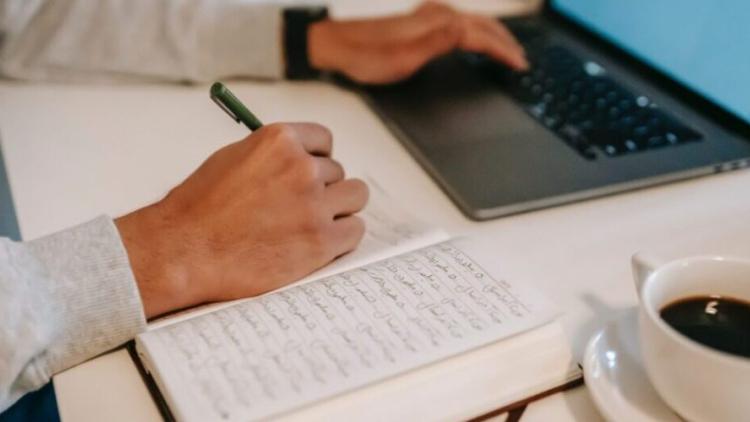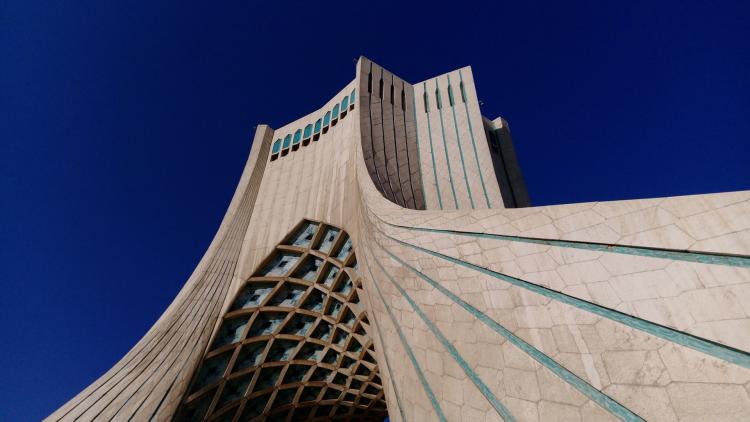MA Global Security and Strategy (Online)


Key information
- Duration
- 2-years (Max. 3-years)
- Start of programme
- April / October
- Attendance mode
- Online Learning (part-time)
- Fees
-
MA/MSc: £12,000
PGDip/PGCert: available as exit awards. - Entry requirements
-
A minimum upper second class honours degree (or equivalent). We welcome applications from academically strong individuals from a wide variety of fields and backgrounds. Candidates with a lower class degree but with degree-relevant work experience may be considered.
Course overview
The MA in Global Security and Strategy online programme takes a critical view to traditional strategic studies, encompassing Africa, Asia and Middle East approaches to grand strategy for peace and security, conflict resolution, international collaboration, war technologies and disarmament.
Delivered by the Centre for International Studies and Diplomacy (CISD), the programme has an inter-disciplinary structure drawing on the teaching expertise and cutting-edge research of SOAS departments and the public discussion of security and strategy in a globalised world.
Students on this MA will gain an excellent understanding of Global Security and Strategy concepts, developing an in-depth critical understanding of their nature from both historical and contemporary contexts. Students will obtain a thorough grounding in the subject, as well as a sophisticated understanding of global policy and governance developments.
Who should apply
Relevant for those engaged in or embarking on careers in global policy, security and strategy or related fields requiring international expertise in government, not-for-profit, corporate or academic environments. This course will be of particular interest to those engaged with Global Security Issues such as the UN and NATO.
By studying online, students have the flexibility to integrate studies into working life without having to take a career break.
Structure
Students will study one core modules and a range of elective modules on offer each session. There are also four research mini modules.
- 1x core modules
- 3x elective modules
- 4x research mini modules
- 1x dissertation
Students are required to rank three elective modules in preferred order from the below sample list for each study session following their core module. All modules are subject to availability and this list is not exhaustive from session to session.
Modules
Important notice
The information on the programme page reflects the intended programme structure against the given academic session. If you are a current student you can find structure information on the previous year link at the top of the page or through your Department. Please read the important notice regarding changes to programmes and modules.
Teaching and learning
This programme is taught 100% online through our Virtual Learning Environment (VLE).
Virtual Learning Environment (VLE)
In the VLE you will have access to learning materials and course resources anytime so you can fit your studies around your existing commitments. For each module, students will be provided with access, through the SOAS Library, to all necessary materials from a range of appropriate sources.
A key component of the student experience will be peer to peer learning, with students enrolled in discussion forums.
Study timetable
In addition to a dedicated Associate Tutor, a Study Timetable is provided for each module and for the overall programme to help you to organise your time. The programme is broken down into two study sessions per year. Each subject module lasts 16 weeks, followed by a research mini module lasting 8 weeks.
Sample study timetable
| Activity | Duration |
|---|---|
| Substantive module | 16 weeks |
| Reading weeks | 2 weeks |
| Research mini module | 8 weeks |
| Reading weeks | 2 weeks |
Assessment
Each module is assessed by five written online assessments (‘etivities’*) comprising of 30%, the remaining 70% is formed of a 5,000 word essay.The etivities provide formative and summative feedback to students as a means of monitoring their progress and encouraging areas in which they can improve.
* An 'e-tivity' is a framework for online, active and interactive learning following a format that states clearly to the students its 'Purpose'; the 'Task' at hand; the contribution or 'Response' type; and the 'Outcome' (Salmon, G. (2002) E-tivities: The Key to Active Online Learning, New York and London: Routledge Falmer.)
Research training and dissertation
Research training is a key feature of this programme, the dissertation module is presented in four development parts, which will follow each of your module sessions. Research modules one and three are formative modules only, and are not assessed.
The dissertation is assessed by the submission of a written dissertation of no more than 15,000 words, excluding the bibliography and appendices, which will account for 85% of the mark awarded for the module (research module four). The remaining 15% of the module mark will be based on the mark obtained for a 1,500 word research proposal (research module two).
The research proposal is compulsory for students going on to do a PGDip or MA; MA students must submit a dissertation at the end of research module four.
Fees and funding
| MA/MSc | PGDip^ | PGCert* |
|---|---|---|
| £12,000 | See below | See below |
* Only applicable to Global Diplomacy: South Asia and Global Diplomacy: Middle East & North Africa .
PG Dip and PG Cert are available as exit awards and interested students should be in touch directly with the course team at glodipadmin@soas.ac.uk
Note this is a new fee structure, students will continue their programme on the same fee structure throughout.
See online and distance learning fees for further information.
Pay as you learn
Our distance learning programmes can be paid in full at the time of enrolment or on a pay as you learn basis. Pay as you learn means you pay for modules prior to enrolment (£3,000).
Postgraduate loans
If you have been a resident in England for 3-years you may be eligible. For more information, see please fees and finance.
Employment
Students from SOAS’s Centre for International Studies and Diplomacy (CISD) develop an in-depth understanding of international affairs, contemporary diplomatic practice and policy-makers. Graduates leave with a portfolio of transferable skills such as critical analysis, problem solving, negotiation and communication, all of which are valued by employers across a number of sectors.
Recent CISD graduates have been hired by:
- Department for Business, Energy and Industrial Strategy
- Ernst & Young
- European Centre for Democracy and Human Rights
- Government of India
- International Rescue Committee
- Medical Aid for Palestinians
- NHS
- The Commonwealth
- UK National Commission for UNESCO
- UNHCR
- United Nations
- World Food Programme
Find out about our Careers Service






